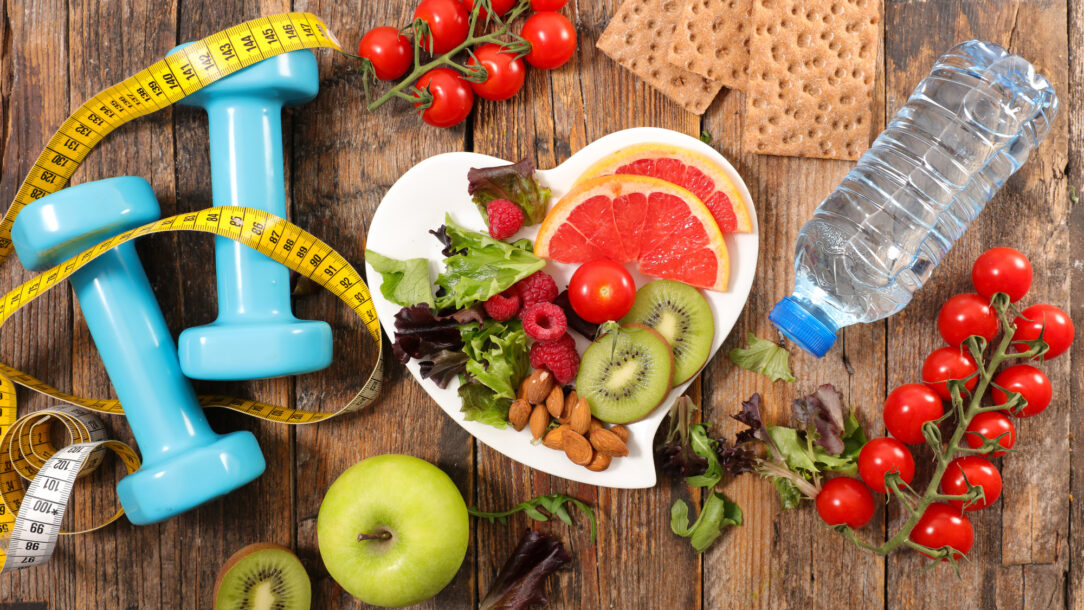
What is eating healthy? Many might tell you that it is the elaborate and intense termination of the enjoyment of delicious foods like cake and pizza. Others might tell you to go on rigorous diets. However, in order to eat healthy, you do not have to take such drastic measures. It is crucial that your body receives the appropriate amounts of nutrients and calories. Eating healthy and having a healthy lifestyle matters.
What is a healthy diet?
When food is processed, all of its original fibers, vitamins, and minerals are taken away from it and replaced with preservatives. Hence, when we say healthy food, we mean that your diet should consist of foods that are closest to their original form. Rather than thinking of what you can take away from your diet, think of what you can add to make it healthier: nuts for heart-healthy monounsaturated fatty acids or raspberries for their fiber and antioxidants. Remember that food is not the enemy.
You want to have a plant-based eating pattern. Studies show that people who follow this pattern have significantly lower risks of chronic diseases. A study published in August 2019 in the Journal of the American Heart Association found that people who follow plant-based eating patterns have a 16 percent lower risk of developing heart disease. This could be due to the incorporation of more heart-healthy fibers and nutrients like potassium, while limiting intake of saturated fat and cholesterol.
Researchers defined a healthy diet as one that focuses on eating whole grains, vegetables, fruits, nuts, and fish. Contrarily, a higher intake of red or processed meats increased the risk of early death by twofold.

Why begin a healthy diet?
- Can prevent disease
The top leading cause of death in the US is assuredly related to chronic disease, which comes with having an unhealthy lifestyle. There is a significant correlation between heart disease, cancer, and diabetes, according to the Centers for Disease Control and Prevention (CDC), and smoking, poor nutrition, lack of exercise, and excessive alcohol use. In other words, stopping these habits could prevent you from many diseases now and in the future.
- Food Choices Affect Your Mental Health
Research has shown that your food choices not only affect your physical state but your mental health as well. A review published in July 2016 in Clinical Nutrition Research reported that a diet rich in vitamins and minerals is associated with a lower risk of mental health disorders such as anxiety, depression, and attention-deficit/hyperactivity disorder (ADHD).
- Eat a Healthy Diet, and You May Lose Weight
One of the primary causes of being overweight and obesity is upholding an unhealthy diet. Fortunately, if you follow a high- quality diet in which you pay attention to portion sizes, you will be much closer to reaching a healthy weight. According to the Mayo Clinic, eating mindfully is incredibly important. Hence, stop eating when you’re full and don’t eat too fast or for emotional reasons.
Why Strive for a Healthy Lifestyle?
Samantha Heller, RD, a senior clinical nutritionist at NYU Langone Health in New York City, says ” that over time, when you make healthy decisions about food, you are at a lower risk for cardiovascular disease, certain cancers, type 2 diabetes, obesity, and even anxiety and depression. You will have more energy, feel better, and may even be in a better mood on a daily basis.” Consequently, having a healthier lifestyle will save you money in the future. How? You won’t have to pay for the treatments/ surgery/ etc. of any disease should it occur. Your health insurance will also be significantly reduced. A review published in June 2017 in the American Journal of Clinical Nutrition, a healthy diet was found to decrease the risk of early death from any cause by 56 percent.

Some Healthy Foods to Try:
- Fruits Berries, bananas, citrus, mango, kiwi, apples, melons
- Vegetables Leafy greens like kale, arugula, and collard greens; peppers; carrots; sweet potatoes; mushroom; squash
- Legumes Beans, lentils, dried peas, hummus
- Whole grains Brown rice, wild rice, whole-grain bread, quinoa, amaranth, millet, bulgur
- Nuts and seeds Almonds, pistachios, cashews, walnuts, chia seeds, flaxseeds, hemp, sunflower, pumpkin seeds
Some Safe Diets to Consider:
- the Mediterranean diet
- the DASH diet
- the MIND diet (a combination of DASH and Mediterranean that’s focused on brain-friendly foods to help prevent Alzheimer’s disease)
- a vegetarian diet (if you choose to avoid meat)

